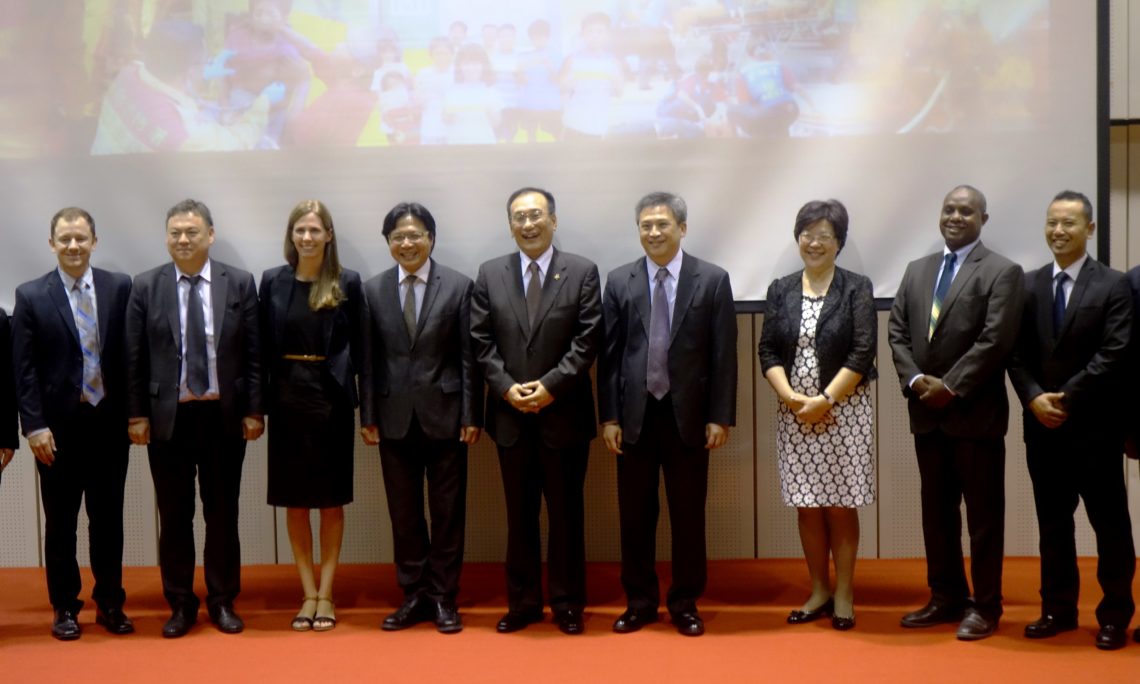U.S.-Taiwan Global Cooperation and Training Framework (GCTF) :
Humanitarian Assistance and Disaster Relief Workshop
July 5, 2017
AIT Official Text #: OT-1712E
(As Prepared for Delivery)
Good morning, and welcome to Minister of Interior Yeh, Vice Minister Liu, along with our distinguished guests.
We are honored to have Minister Yeh and so many high-level officials here today to open this training course. Their presence signifies the importance we all place on the work you are doing here, and the importance we all place on effectively addressing natural and man-made disasters.
First, let me extend our appreciation to Taiwan’s National Fire Agency, including Director General Chen and his team for helping to put together this event, both here at this state-of-the-art facility and also down at the National Fire Agency’s world-class training center in Nantou. I would also like to thank my colleagues at the Ministry of Foreign Affairs, including Vice Minister Liu and Director General Christine Hsueh, for their support of the U.S.-Taiwan Global Cooperation and Training Framework, or GCTF.
And, most importantly, to all our expert guests from around the region, welcome and thank you for being a part of this important effort. I would also like to thank Erin Magee from USAID’s Office of Foreign Disaster Assistance for being here to share best practices in addressing humanitarian disasters.
This is the first program dealing with humanitarian assistance and disaster relief we have held under the GCTF. Since GCTF launched in June 2015, the United States and Taiwan have jointly held training workshops on public health, energy efficiency, women’s empowerment, and e-commerce.
Today, we are launching a new program on how we can respond to disasters at home, in the region, and throughout the world. As you are all well aware, disasters can happen at any time and any place. Asia, in particular, is susceptible to a wide range of natural disasters.
Since the destruction wrought by Taiwan’s 9/21 earthquake in 1999, Taiwan has worked to develop its ability to respond to and mitigate natural and man-made disasters, and in doing so has become a model of disaster preparedness in the region. Moreover, Taiwan continues to showcase its desire to assist others in need, as evidenced by its generous contributions in the wake of the 2015 Nepal earthquake, and its quick response to Typhoon Haiyan in the Philippines in 2013 and the Japan earthquake and tsunami in 2011.
Given this tremendous capability, it makes perfect sense for the United States and Taiwan to partner together, with each of you here today, to bolster our ability to respond to disasters whenever and wherever they occur.
Natural and man-made disasters can strike without warning, causing terrible loss of life, threatening livelihoods, and depriving people of the most basic life necessities. Each of you in the room hails from places that have been fundamentally affected by these types of catastrophes.
But, in turn, each of your communities have benefitted from both local and international response efforts aimed at mitigating these disasters. Creating a robust domestic capability to respond to natural disasters is essential to ensuring that each of your communities, and the region as a whole, can rebound, and rebound quickly, from such disasters.
Like all other global challenges and non-traditional security threats, effectively responding to disasters – and then helping to rebuild after the initial disaster has passed – requires broad international cooperation and coordination. We hope that the workshop this week helps to build your understanding and capacity to deal with future disasters, whenever and wherever they occur. We also hope this event creates connections within the region so that, when a disaster does occur, you can quickly reach out to others for assistance.
Again, on behalf of the American Institute in Taiwan, I want to welcome our visitors, and offer my praise and encouragement for the work that you do to keep your people safe. I know that each of you has an important role to play, and I am happy that you were able to take time to participate in this important workshop.
Thank you.
















![Video Thumbnail [Recovered]-01](../wp-content/uploads/sites/269/Video-Thumbnail-Recovered-01-1-750x450.jpg)





